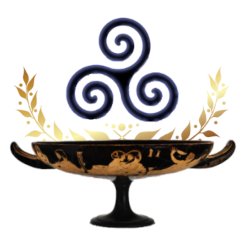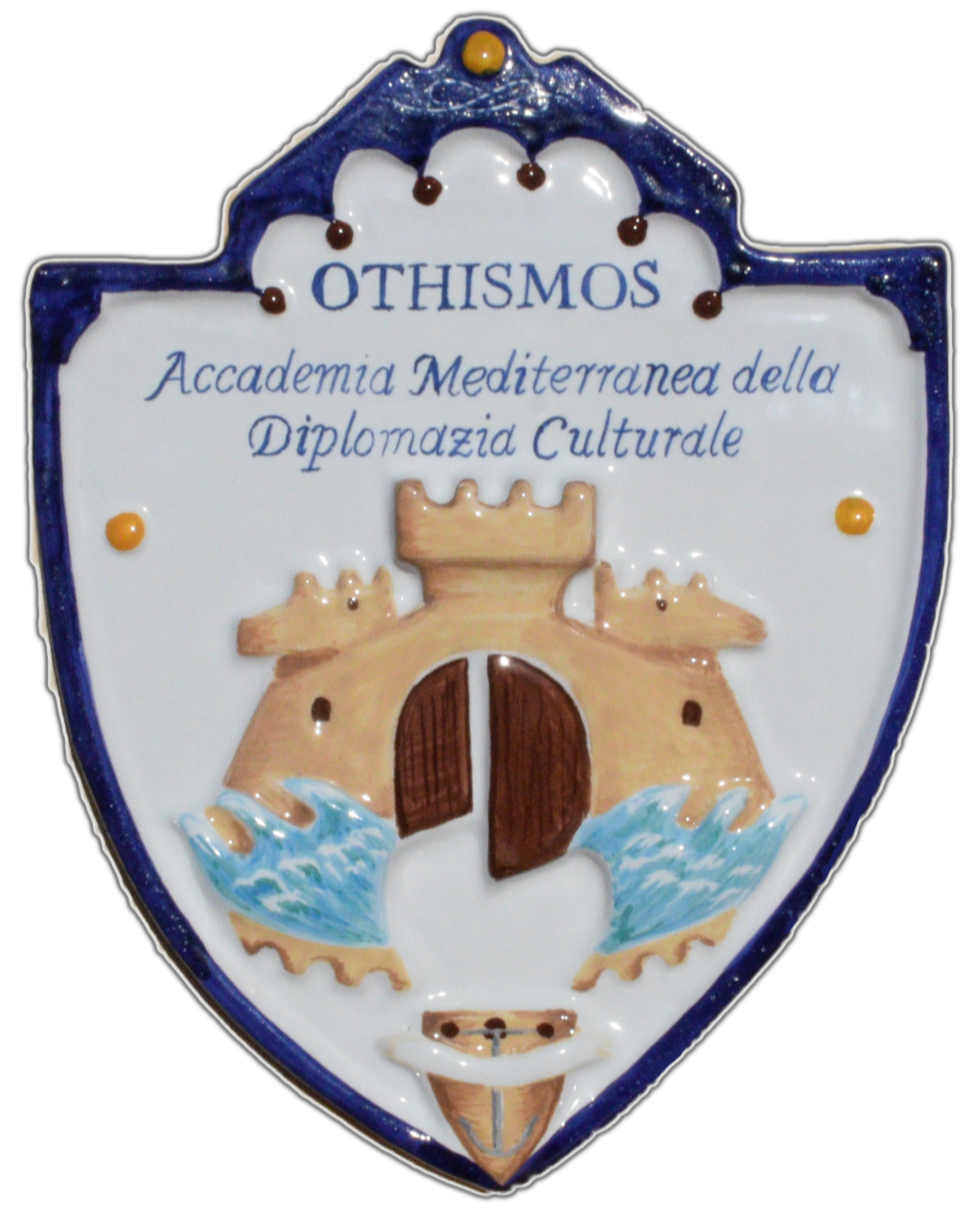

Fernand Braudel
describes the Mediterranean as follows:
Contrary to the common imagination,
the Mediterranean Sea does not begin with the sea:
it is, first of all, land.
“What is the Mediterranean ?”
“A thousand things together. Not one landscape, but countless landscapes.
Not a sea, but a succession of seas.
Not one culture, but a series of cultures stacked on top of each other.

Cultural heritage includes tangible culture (such as buildings, monuments, landscapes, archive materials, books, works of art, and artifacts), intangible culture (such as folklore, traditions, language, and knowledge), and natural heritage (including culturally significant landscapes, and biodiversity).
Increasing awareness of the necessity for societal change.
One constant since the beginning of time might be change, however, the fear of change is also a constant.
Young people, not only can, but must become "Key Leaders" in this turbolent age.
For this reason matchmaking of the adult generation with the young generation for a "Sharing Experience" process, is of vital importance to trigger the speed of change.
The Mediterranean basin has always been a multicultural region with a great diversity of linguistic, religious, social and ethnic groups.
This turbolent, dynamic social and cultural landscape encouraged extensive contact and exchange among different communities.
How do the Mediterranean ethnic communities mitigate and mediate their diversity interactions ?
How did each group defend and empower distinct identities while interacting with others ?
What new identities came into existence because of this cultural contamination ?
The Mediterranean Academy of Cultural Diplomacy seeks to discover what happened in the past and what still happens when all the different ethnic, social, linguistic and religious groups, among others, come into contact with each other, especially in multiethnic commercial settlements located along the coasts and in the middle of this sea.
The Mediterranean is not a geographical place.
For millennia everything has flowed towards this sea, messing up and enriching its history.
In fact, the sea, as we know and love it, offers the most astounding and enlightening evidence of its past.
The Mediterranean, the cradle of our civilization, is a place of religious, social and territorial contradictions, the result of multiple conflicts that have not been resolved for a long time.
The Mediterranean Nations play a crucial role in promoting dialogue and intercultural understanding (by reducing inequalities), the protection and respect of human rights, social justice, starting from relations between equals, based on the principle of inclusive citizenship and collaboration strengthened local politics (Local Democracy and Public History).
A culture can become arid and sterile when "it closes in on itself, refusing any exchange and comparison around the truth of human existence".
Ever since the first cultural diplomats (explorers, travelers and artists engaged in the world), the exchange of ideas, encounters between languages and comparisons between the arts have improved relationships between people and the understanding of the collective identity of peoples.
Cultural diplomacy is therefore a practice intrinsic to human history; a soft power indispensable for the mutual understanding of populations.
An ethical attitude through which each person exercises and expresses his or her freedom of thought, while respecting and welcoming the new present in the different, in the distant and in the other.
The Mediterranean is a region with its own identity, represented by the mosaic of cultures and peoples linked together by history.
The same history that teaches us that, without mutual respect and understanding of the identity of peoples, this interdependence has turned into distrust and conflicts of all kinds, causing prevarication, exploitation and violence.
We must unite peoples and not divide them!


“Massive strategies of cultural influence and dominance (cultural competition of nations) are taking place.
There are highly refined techniques and tactics to undermine and destroy the identity of nations, at all levels
(cultural governance, cultural dominance and cultural imprinting).”
Joseph Caristena
In a moment of great epochal changes, like ours, all certainties can transform in an instant into uncertainties, such as the origin of man, life in space, peace in the world and even our existence as human being.
Scenari del Mediterraneo
In 2020, the population of the 22 countries bordering the Mediterranean reached 522 million individuals.

...

...

...

...
We can no longer relegate to Governments, too, the arduous task of defending the identity of the tangible and intangible cultural heritage and, therefore, the identity of a people, from these attempts at manipulation (cultural imprinting, cultural governance and cultural dominance) that come, by now, from every direction.
Cultural diplomacy must become a value shared by the greatest possible number of citizens, returning (as a daily creed) to the principles of that cultural responsibility so hoped for up to now.
Joseph Caristena
Founder of the Mediterranean Academy of Cultural Diplomacy
Joseph Caristena
Founder
There are 21 countries bordering the Mediterranean sea, including the two island states of Malta and Cyprus.
11 are located in Europe, from west to east Spain, France, Monaco, Italy, Slovenia, Croatia, Bosnia and Herzegovina, Montenegro, Albania and Greece (in addition to the aforementioned Malta).
The remaining 10 are Turkey, Syria, Lebanon, Israel and Cyprus and in Africa, with Egypt, Libya, Tunisia, Algeria and Morocco.
Barcelona - Spain - 1995
Aware of the problems deriving from the instability in the Mediterranean,
the European Union launched a new policy in Barcelona in 1995
referred to as "neighborhood".
The Barcelona Process, later better known as
Euro-Mediterranean Partnership (EMP).
The 'Barcelona Declaration' covered broad topics - the
politics, peace, security, economy, finance, culture -, for the
first time written on a document that intended to promote a
Global Mediterranean Policy.
The Barcelona conference was opened by the Foreign Minister
Spanish Javier Solana, who, on that occasion, underlined how the
participating countries had the opportunity to correct misunderstandings that caused
the clashes that had characterized their relations in the past centuries.
Sia Ehud Barak (most decorated soldier in Israeli history. Elected Interior Minister in Yitzhak Rabin's Cabinet - 1995)
and both Yasser Arafat (Palestinian politician and leader, chairman of Al-Fatah, of the Palestine Liberation Organization - PLO)
, spent words of praise for the coordination work carried out by Minister Solana.
Libya did not participate in the conference, since Colonel Gaddafi
he believed that the latter was nothing more than an attempt by the Union
European Union to pursue a hegemonic position outside its borders.
However, in 2000, Libya reversed its steps by recognizing and
signing up to the objectives of the Barcelona Declaration.
The Conference emphasized the strategic significance of the Mediterranean, which
it was basically to be based on mutual understanding, the
solidarity and cooperation to maintain natural privileges
set aside by history.
The Barcelona Conference (hereinafter referred to as the Process of
Barcelona), saw the participation of 27 States: fifteen in representation
from the European Community and twelve representing countries in the area
Mediterranean: Morocco, Algeria, Tunisia, Malta, Egypt, Jordan,
Israel, Lebanon, Syria, Turkey, Cyprus and the Palestinian National Authority.
The League of Arab States and the Arab Maghreb Union (AMU), were
invited, as well as Mauritania, with "Observer Status".
Culture is an essential element of a nation's identity in the world and represents a tangible and intangible heritage to draw on in order to face the challenges of the contemporary world.
Also the language is a full part of it as a legacy of the past and a bridge to the future, and scientific research, a sector in which every country can boast peaks of excellence worldwide.
Cultural promotion covers a fundamental role in every country's foreign policy.
Cultural memory is a focal point not only for the identity of a nation or a community, but also for each individual.
Memories become of common interest and once aggregated in a structured way in their original context they can also be considered as intangible cultural assets of a historical identity nature.
Collective memory, i.e. social memory, is certainly made up of words, images, gestures, rituals, celebrations and social relationships.
It is determined in the essential configuration of the communicative processes of history.
There is a desire not to lose one's identity, the fear of being struck by an amnesia that can erase what is in us from the past.
Cultural memory is fundamental not only for the identity of a nation or a community, but also for that of each individual.
The continuous search and the incessant building of one's identity in a continuous evolution, like that of a nation, implies analyzing our roots with extreme responsibility and dignity, bearing in mind that among the memories
we have several salient moments that are not only important as they belong to our history, but represent a protective barrier against the repetition of critical mistakes, which throughout history have caused
in the past extreme suffering caused by wars and other self-destructive entities.
Art assumes an extremely important role in the process of strengthening the identity of a community.
Art is not created for pleasure, but to accompany man throughout his existence,
becoming a testimony of the presence or absence of him.
“Massive and massive strategies of cultural influence and domination (cultural competition of nations) are in place.
There are highly refined techniques and tactics to undermine and destroy the identity of nations, at all levels
(cultural governance, cultural dominance and cultural imprinting).”
Joseph Caristena
It is important to highlight the fundamental role that self-knowledge and the building of an identity have.
This, according to the definition that Giovanni Jervis suggests is: the exercise of recognizing and being recognizable, that is the describable set of our characteristics.
To recognize and describe oneself, however, it is necessary to have a memory of oneself (Jervis, 1997).
(Date of Birth: 15 ottobre, 1923, Santiago de Las Vegas, Havana, Cuba
Date of Death: 19 settembre, 1985, Santa Maria della Scala, Siena)
Italo Calvino reveals these elements as "tales of invisible cities" (Calvino, 1972) .
It can be understood that the past is inscribed in the urban artifacts: on the walls of the houses, in the monuments and in the equestrian statues that stand in the squares, in the names of the streets, sudden
sat on the streets, with which unknown hands persist in remembering; but it is also inscribed in the documents and images that belong to the mass actors who protect the material archives of a city, that is, the communication specialists assigned to circulate the images of the past itself.